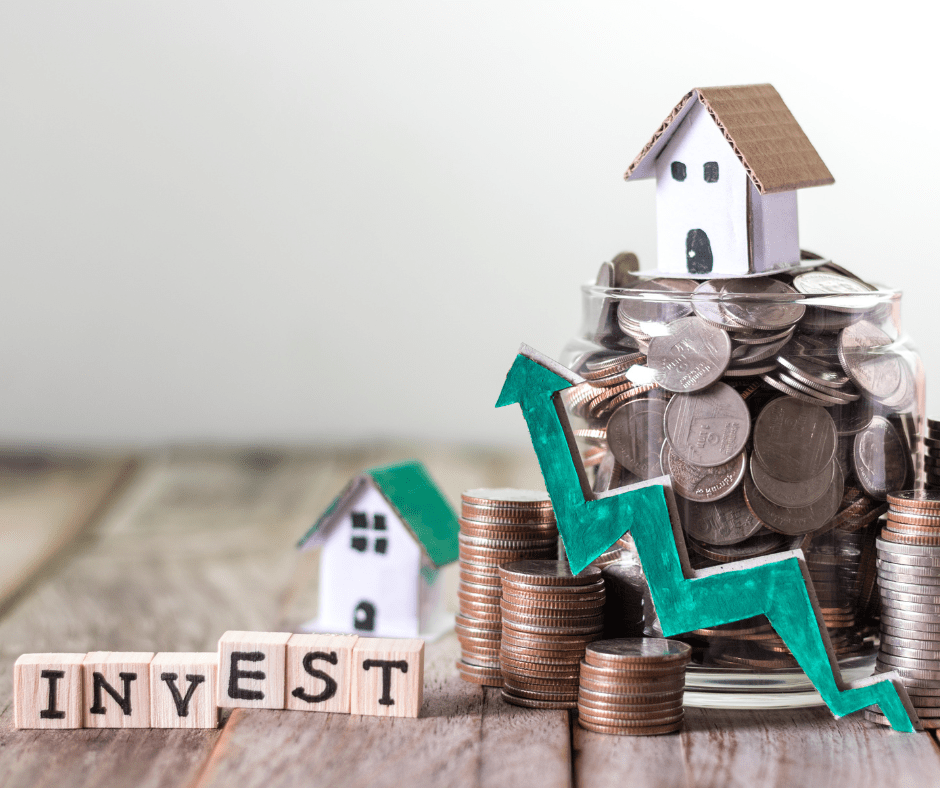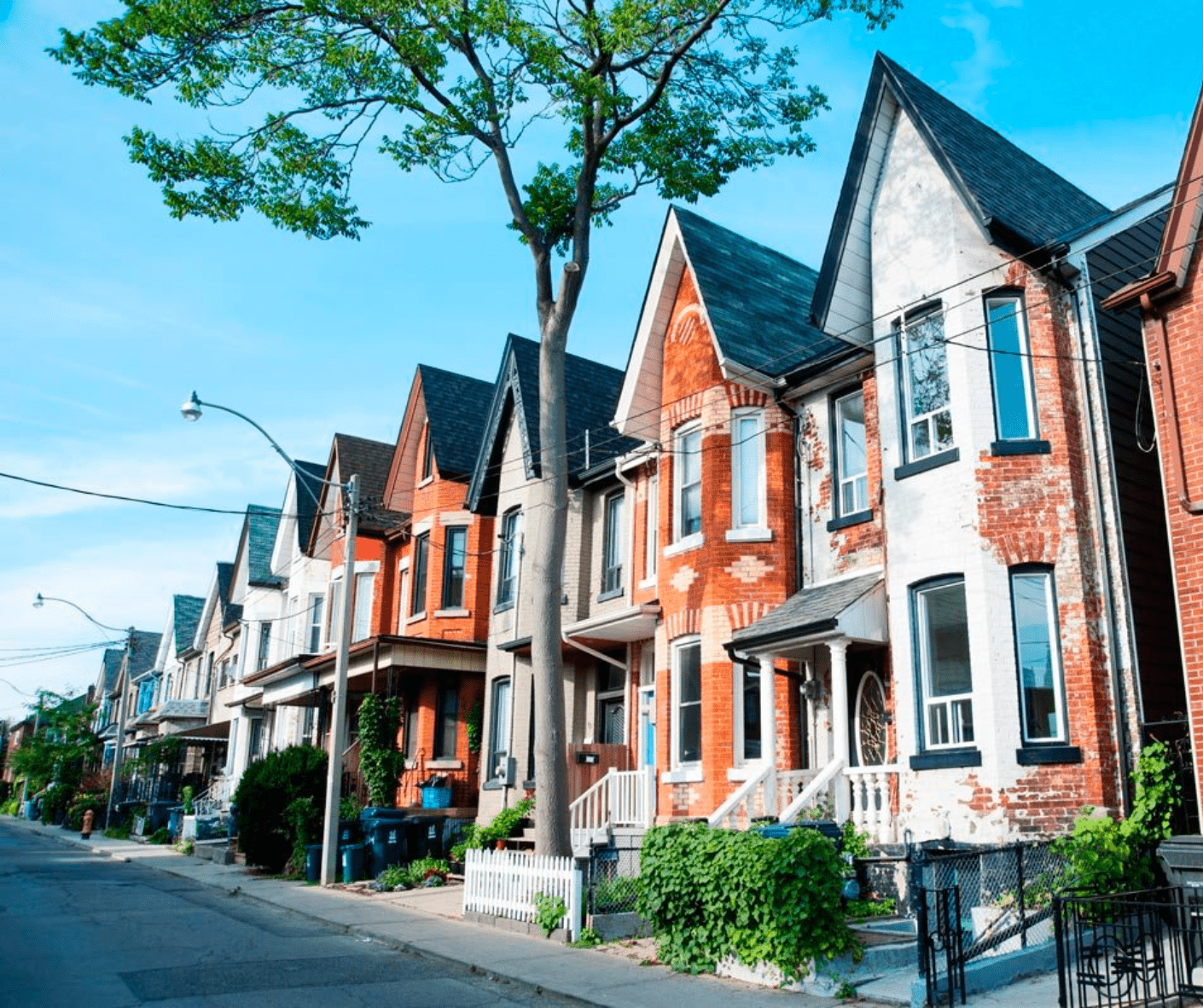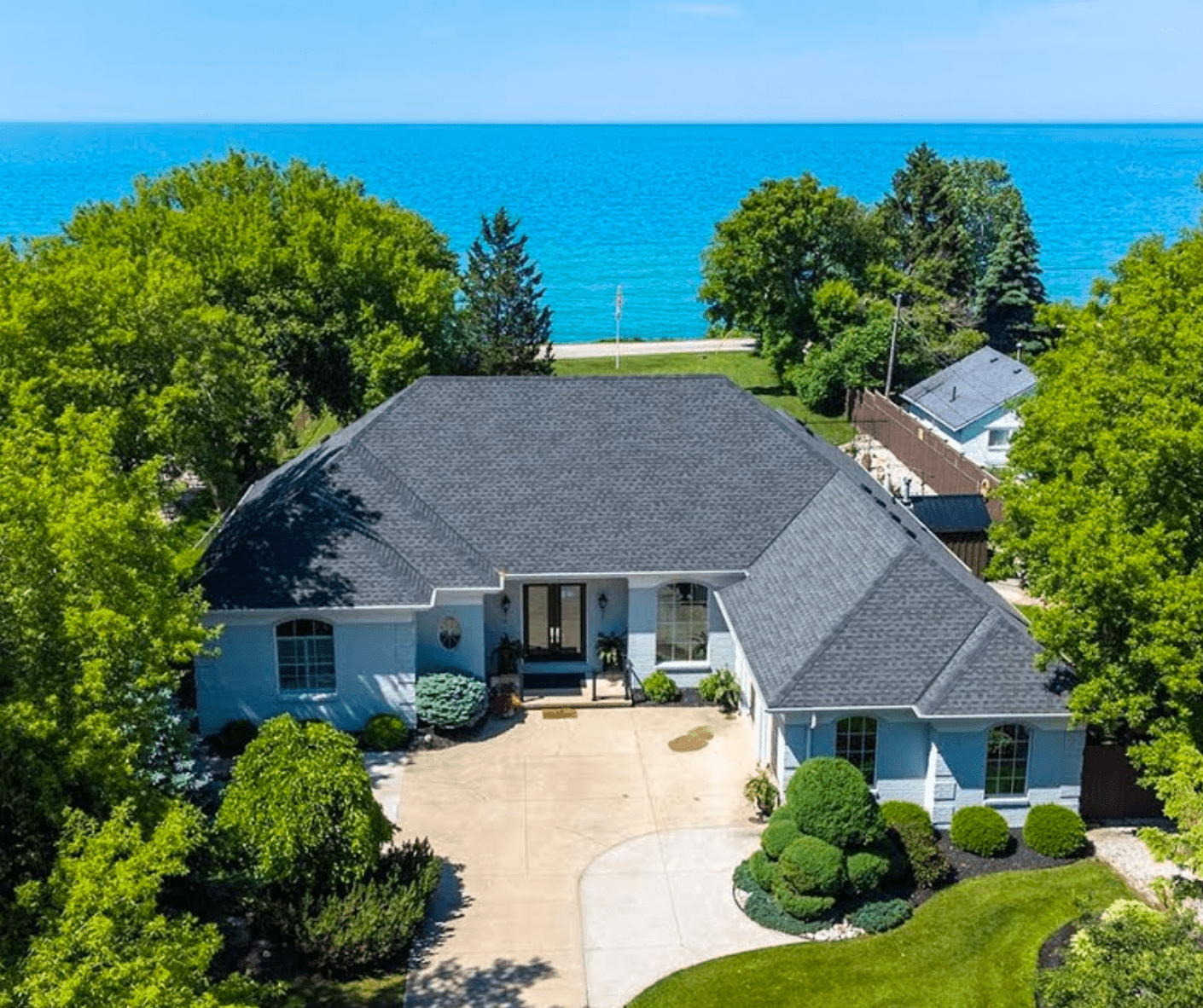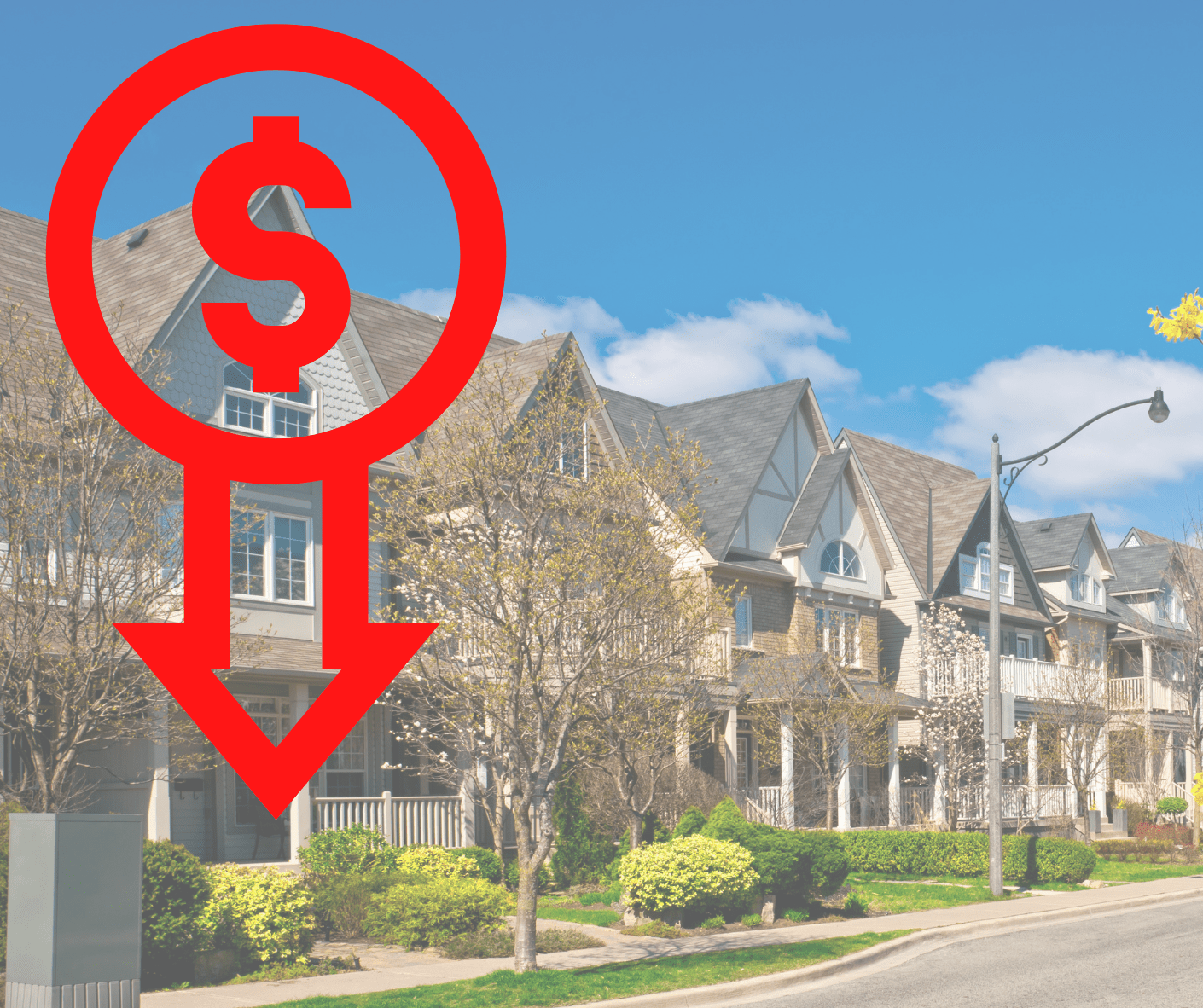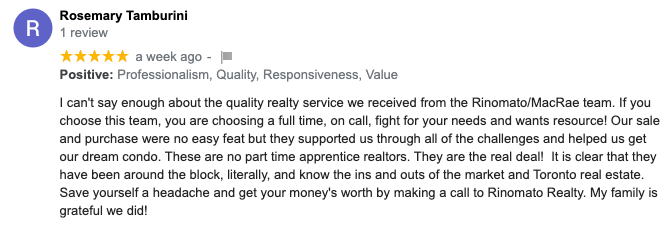(647) 970-2880
CONTACT@RINOMATO.COM

Realty That Is Focused On YOU
Expert Guidance for Buying or Selling Your GTA Home
"Helping homeowners and homebuyers who feel stuck overcome obstacles and move forward with confidence."
Sandra Rinomato
This is the kind of value that doesn’t come along often:
🛏️ 1 Bedroom | 🛁 1 Bath | 📐 638 Sq Ft
☀️ South-facing | 🧺 RARE Linen Closet
🧳 Short-term rentals allowed!
📦 Oversized locker + P1 parking
🛡️ Concierge + Tactical Guard | Private Balcony
🏋️ Indoor pool, gym, steam room, party & media room
✨ Immaculate condition – perfect for first-timers, downsizers, OR investors looking for income potential.
📍 Near highways, TTC, schools & community centres.
Click the Link to Digital Book: https://www.sandrastories.ca/2-eva-road
529-2 Eva Road for Sale $469,000

🌿 New Listing | 1041 Concession Road, Adjala-Tosorontio 🌿
Click Image for Video
Nearly 12 private acres | Over 5,500 sq ft finished | Gourmet kitchen | Heated pool
Escape the city without sacrificing luxury. This country estate offers hand-scraped walnut floors, a chef’s dream kitchen with custom walnut cabinetry and high-end appliances, embassy-sized dining space, and sweeping views of rolling hills.
Step outside to dine al fresco on a massive deck overlooking your heated pool, or enjoy the in-law potential of the sun-filled lower-level suite with radiant floors and walk-out patio.
🔥 Natural gas service + 50-year steel roof
🏡 Peace, privacy, and perfect for entertaining.
Proudly Featured In:
Ravine Retreat in Woodbridge For Sale
This isn’t just a house, it’s a private retreat in the heart of West Woodbridge. Welcome to 20 Woodcroft Lane, where nature, style, and comfort collide to create something extraordinary.
✨ Imagine sipping your morning coffee on a glass-railed deck that feels suspended among the treetops… hosting unforgettable dinners on a patio that backs onto a lush, green ravine… and retreating inside to a beautifully designed home with 3 spacious bedrooms, 4 bathrooms, and a bright walk-out basement that doubles your living space.
Every room is flooded with natural light and every window frames views that belong on a postcard. This is more than a home, it’s a sanctuary.
And here’s the best part: while you’re surrounded by forest and serenity, you’re still only minutes from highways, schools, parks, and all the conveniences of Vaughan.
Opportunities like this don’t come often in West Woodbridge. If you’ve been dreaming of a lifestyle that blends everyday practicality with jaw-dropping natural beauty, this is it.
📍 20 Woodcroft Lane, Vaughan
🛏 3 Bedrooms | 🛁 4 Bathrooms | 🚗 10 Car Parking
💲 $1,200,000
👉 Reach out today to book your private showing—homes like this don’t last.
Proudly Featured in:
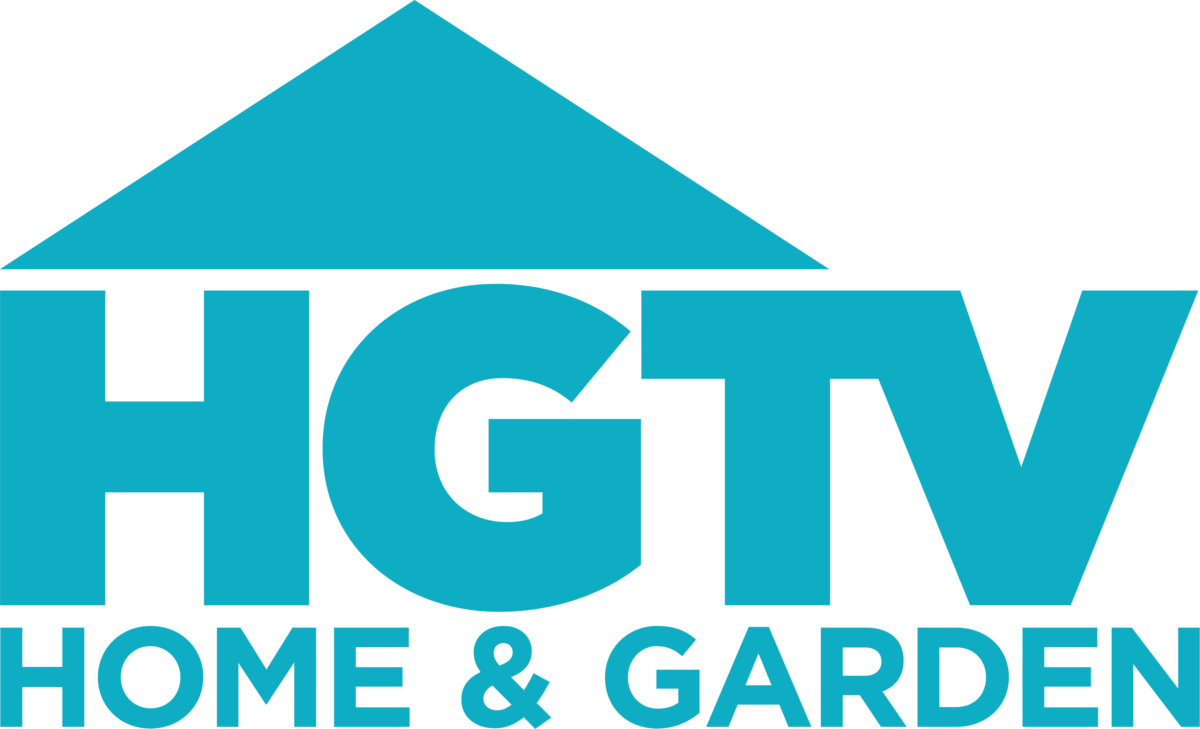

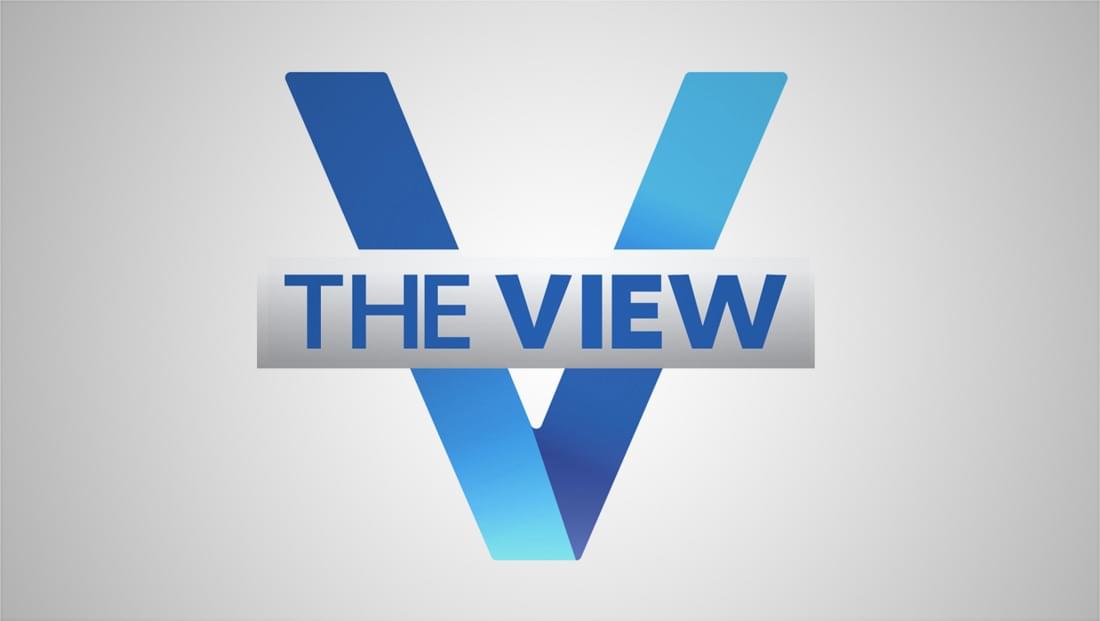


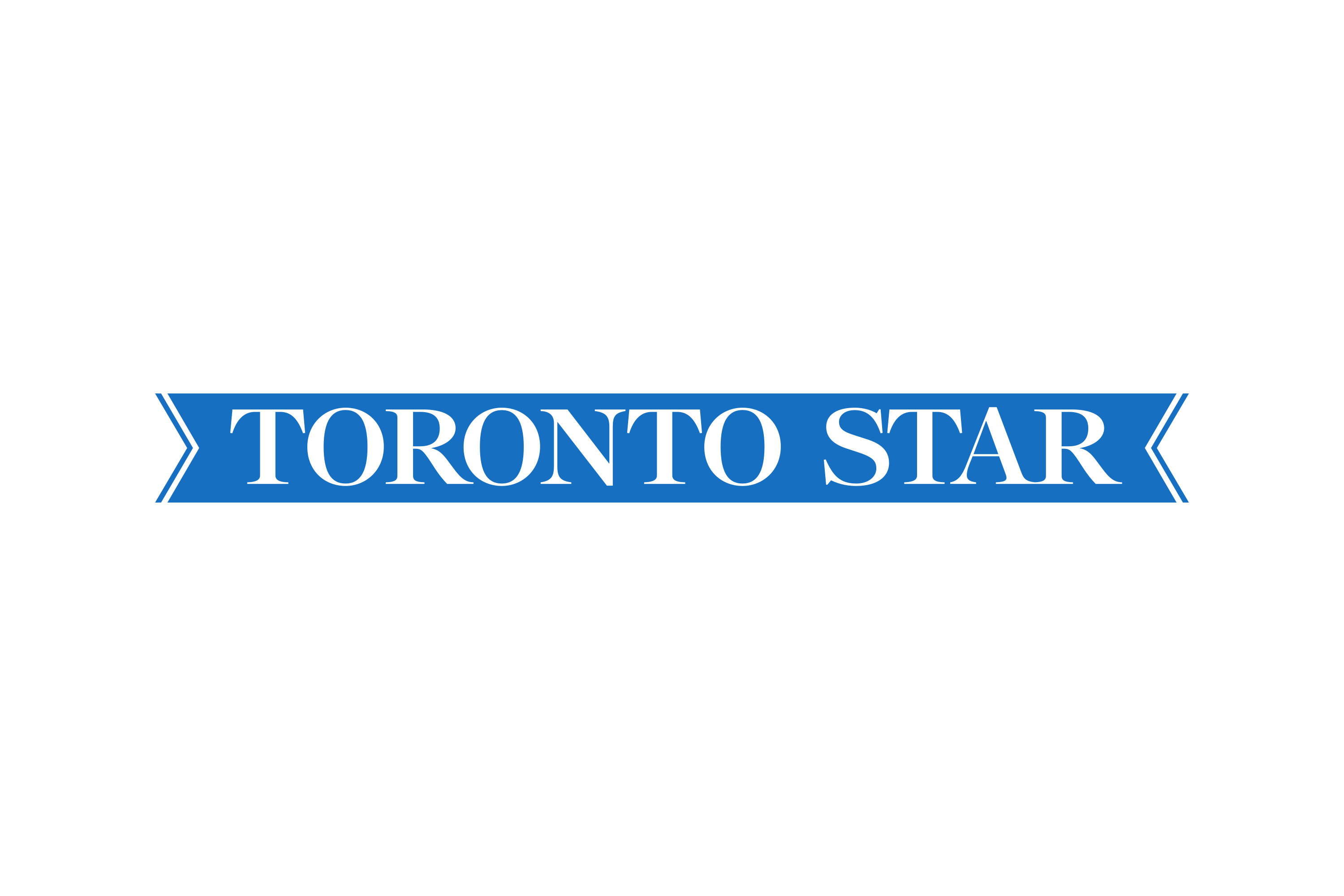


Curated Property Searches
We Offer Simple, Three-Step Process To Help You Navigate The Real Estate Market
1. Schedule a Meeting
After contacting us, we set up time for a no-obligation consultation. What's in it for you?At bare minimum, you will likely gain helpful information you didn't have. During the consultation we ask you thought provoking questions to find out what exactly you need to prepare for your move.
Watch this 1:43 minute video or read transcript below
Watch this 48 second video or read transcript below
Hey, we have 40 years of experience between us and over that time period we have fine-tuned our selling system. It doesn't matter if you're selling something for $200,000 or $7,000,000 - it's the same system. It's no stone unturned. We do everything, we use traditional real estate methods and we also use new digital & technologically advanced systems to sell your property. Maximum exposure is definitely important. We leave no stone unturned. And our services are guaranteed in writing.
We Are Focused On You!
You know it's the right time to make the move. It is a huge step in your life whether you are
buying your new home or sell your current property.
It can be challenging and overwhelming to navigate the real estate market and make the best
decision that fits your needs and wants.
We are here to make it easy for you. With 45 years of combined experience under our belts we
cannot wait to guide you though your big life transition.
We're Here To Guide You Though the Real Estate Market
Together with my partner and husband, Gary MacRae, we’ve built a thriving real estate business by truly listening to our clients’ needs. This approach allows us to help them achieve their ultimate goal: getting to the place they truly want to be.
With years of experience and hundreds of clients served, I understand how challenging and overwhelming moving can be. Your home isn’t just a building; it’s a reflection of your journey, accomplishments, family, and the life you’ve created. Moving is an emotional process, and my priority is to ensure you retain full control while we proceed at your pace.
Many know me as the star of HGTV’s Property Virgins and Buy Herself. During that time, Gary worked behind the scenes, helping countless participants achieve their real estate dreams. Today, we leverage modern marketing strategies and cutting-edge technology to deliver maximum exposure for your property. With a massive online presence and an unshakable reputation, we’re proud to provide the trusted expertise you deserve. Royal LePage, one of Canada’s premier real estate platforms, is central to our approach and is widely recognized as "the voice of Canadian real estate."
Whether you’re selling for the first time or the first time in a long time, we offer top-tier, responsible care tailored to your unique situation. We work with a wide range of sellers across the GTA, ensuring each client’s journey is as seamless and stress-free as possible.
If you’re ready to take the headache out of selling your home, schedule a call today. Let us show you how we can make your next move the right one.
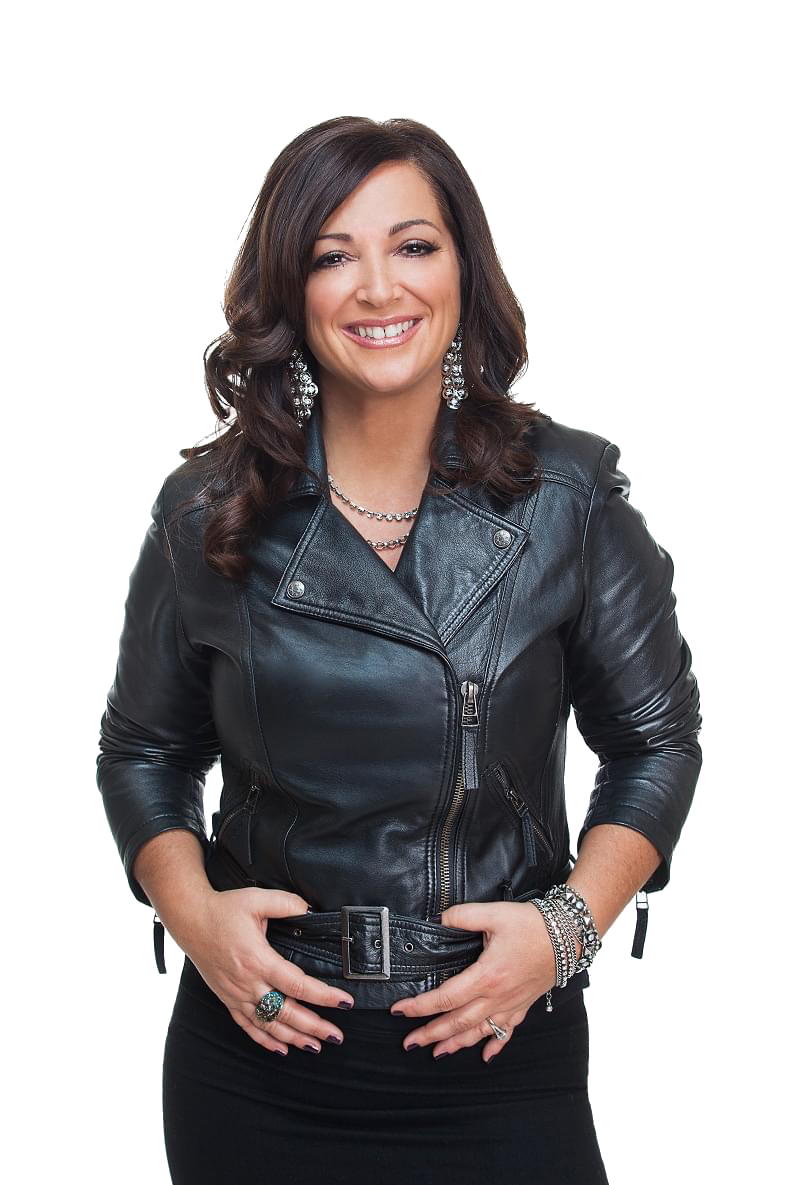
Sandra Rinomato
Real Estate Broker, CRB, SRS, SRES
My husband and award winning business partner, Gary MacRae
Gary MacRae
REALTOR®

Gary is a seasoned realtor with a wealth of experience and a proven track record as a top-producing agent. Known for his direct, no-nonsense approach, Gary earns the respect and trust of clients and colleagues alike. His exceptional ability to connect with people from all walks of life allows him to navigate diverse situations while always prioritizing his clients' best interests.
As a highly skilled negotiator, Gary possesses a natural instinct for structuring deals with precision and efficiency. His extensive experience enables him to process information rapidly, driving his proactive and dynamic style to deliver outstanding results. Clients consistently appreciate his unwavering dedication and the seamless, satisfying outcomes he achieves.
"Selling our house could have been a stressful process but, Gary MacRae made the process as easy and smooth as possible. Thanks entirely to his wealth of knowledge and experience in real estate, our journey to sell our home ended up a windfall exceeding all expectations.
With our best interests in mind, he successfully navigated us through the dynamic real estate market, advising on the most opportune time to list using the best strategy for the target market. Gary brought in tradespeople for finishing touches, a professional stager and photographer / videographer to showcase our home and even managed all snow removal!
Gary’s honesty, integrity and ethical behaviour is unparalleled. Coupled with constant communication he kept us well informed, equipped to make the right decision. His sound advice paid dividends. We are incredibly grateful to Gary for all he did to bring this sale to fruition and we highly recommend him for all your real estate needs."
- Sharon Botes
Testimonials
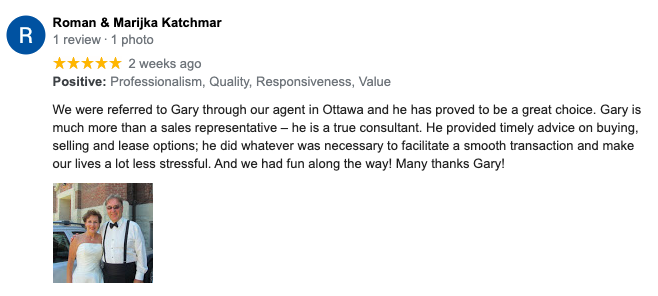

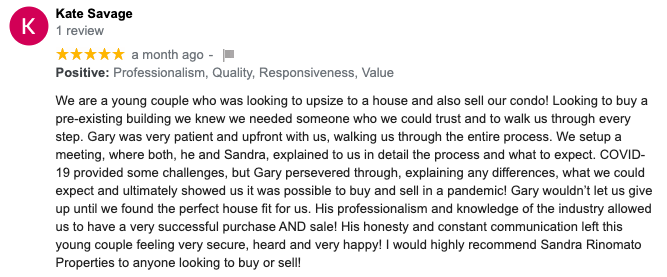

This Is Why You Need To Schedule A Call With Us Today!
- Your goals & objectives are truly important to us
- We create a custom strategy that suits you
- You retain control at all times
-
We go at your speed
-
We decipher the data for you using 45 yrs combined experience and explain everything to you
Ready for a Free no-obligation call? We love to talk about real estate.
"We help people who feel stuck in their lives find
solutions and overcome obstacles that block them, so they
can move forward to the next stage of their lives."
-Sandra Rinomato & Gary MacRae
OR
How Can We Help YOU?












Office: 416-565-3001 | Call or Text our Real Estate HOTLINE: 647-970-2880
Royal LePage Terrequity Realty Brokerage
3082 Bloor Street West, Etobicoke, ON M8X 1C8
Privacy Policy Not intended to solicit buyers or sellers under contract with a brokerage.






